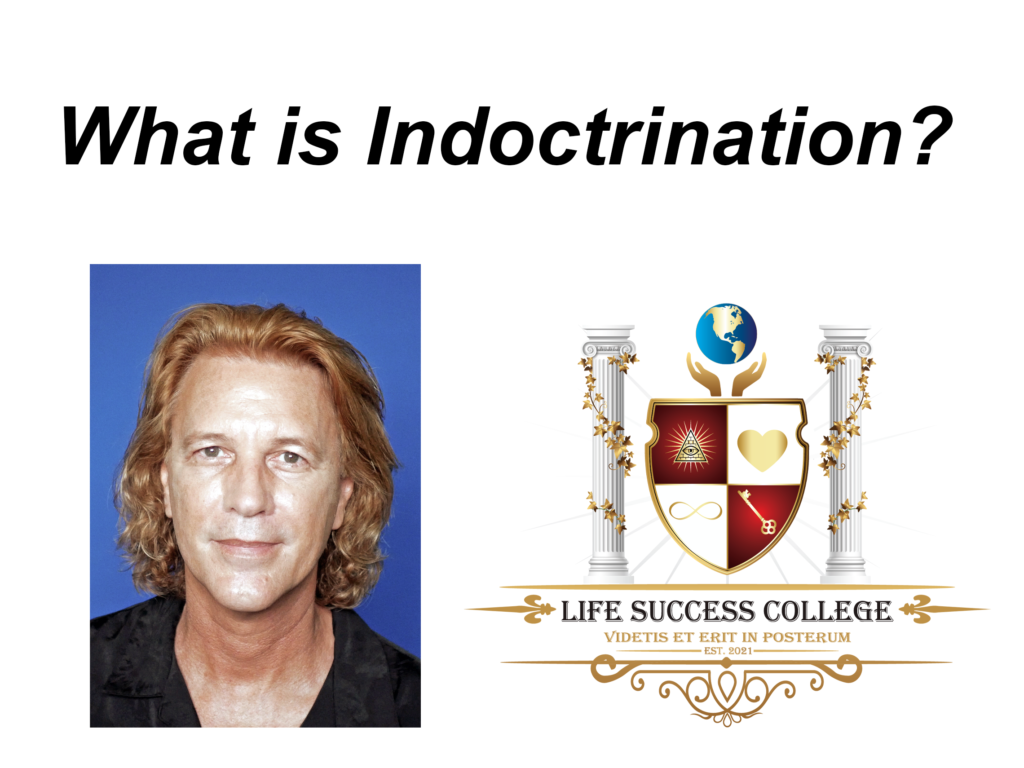Indoctrination is the process of being taught a set of beliefs and values that are based on a specific doctrine. A doctrine is a written or unwritten set of rules or principles. So, if we want a clearer understanding of the meaning, we have to go back further and realize that someone, somewhere, at some time, had to create these rules, which means someone or some group of people had to decide what these rules were. And that these rules are based on the original doctrine’s author’s own beliefs and values and have usually been revised over time by people who hold or had the authority to do so.
Ask yourself:
- Are the indoctrinator’s beliefs and values acceptable to you?
- Do you agree with them?
- Do you even know what their beliefs and values are?
- Did you just blindly accept them unchallenged?
- What if they are or were wrong?
If we go back through this assumed righteous, or perhaps a potentially distorted chain of custody, we can deduce that someone or a committee decided that these are the rules. And that the rules should and are intended to be promulgated or kept alive by indoctrinating the “to be determined” current and future students or followers.
We were taught not to question authority, but if we were indoctrinated from our inception or youth, then this is all we know, and why would we question it? After all, it is the truth, as we believe it. We were supposedly taught by a credible source, as far as we knew at the time. To contradict this might get you labeled as difficult, ignorant, unintelligent, or uncool, and you might be perceived as not being in line with the standards of certain religious, political, and social groups. You could possibly be expelled, isolated, or removed from your social group and in ancient and even modern times this would be critical for your survival. So, you went along with it.
Ask yourself:
- Where did our beliefs originate?
- Why did we accept them?
- And if we change them, what would be a better belief? And why?
Indoctrination, in other words, is an attempt to teach and transfer beliefs and values to a new student or generation of students or followers.
Understand that in order to be a genuinely free-thinking, self-actualizing, and responsible individual, you have to be aware of your personal history. You are free to believe what you want to believe, but you need to explore why you believe what you believe. You need to understand what criteria your beliefs or rules are based on and that you are aware of where they came from. If you don’t agree with those rules or beliefs now that you are an experienced, more worldly, and intelligent being, then you may want to make some well-thought-out changes.
We all need to take a good look at our teachers and their values and beliefs and ask ourselves, who taught them? If we logically think about it, just because it was taught before does not mean it was wise or intelligent; maybe it was at a certain point in time. We are taught ancient wisdom is sacred, but what if the person or persons who set up the belief or rules in the first place was mentally or emotionally unstable or self-serving and also, what if they were never questioned or challenged?
History has a way of being distorted or tilted towards the direction of the bias of the person who wrote it or is rewriting it. Then after a number of times retelling it, it then turns from truth or non-fiction to fiction or from fact to myth or allegory. We should analyze who we are and what we believe. Take a detailed look at your previously installed filters, values, and beliefs, then determine if they could be clouding your judgment and decisions.

